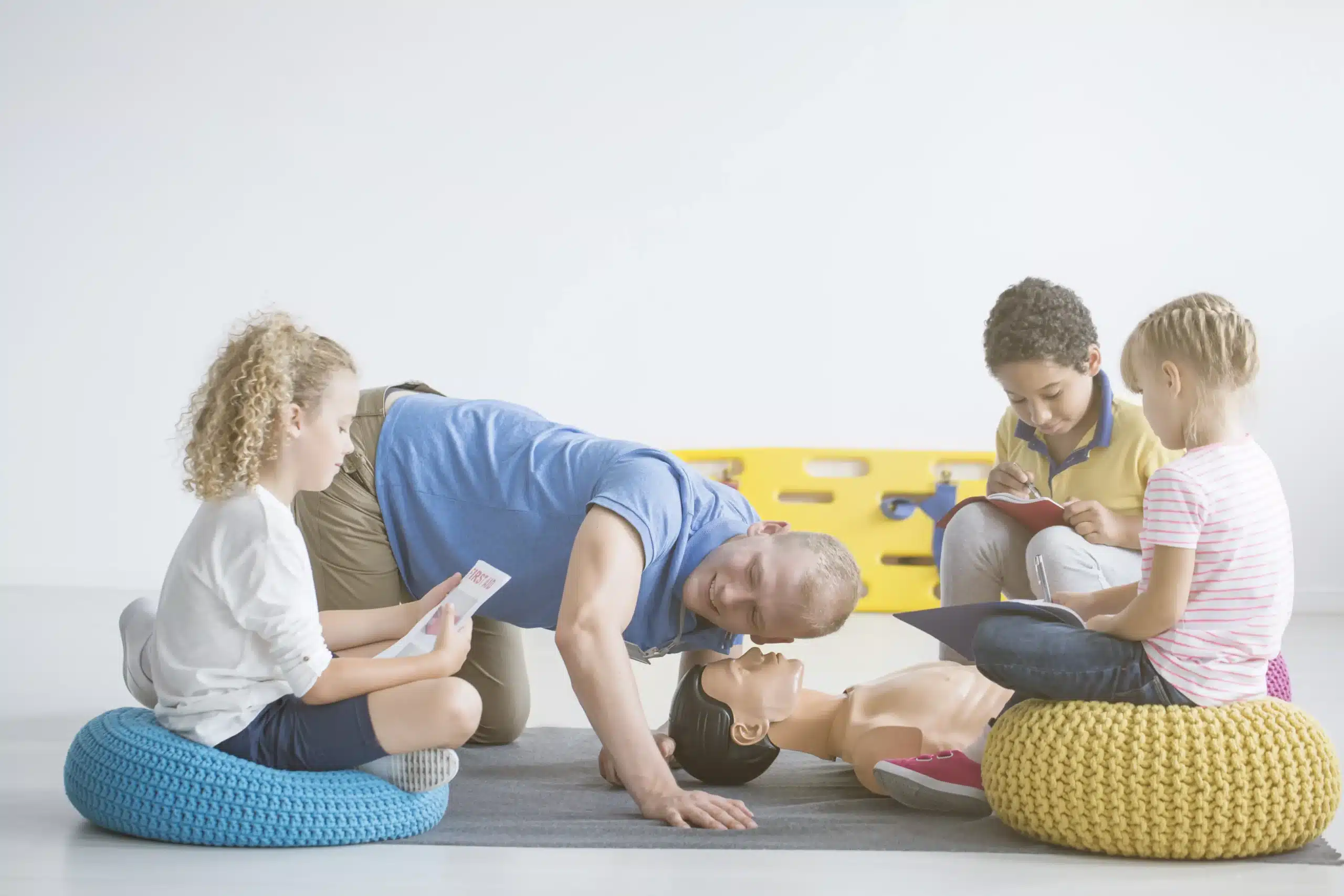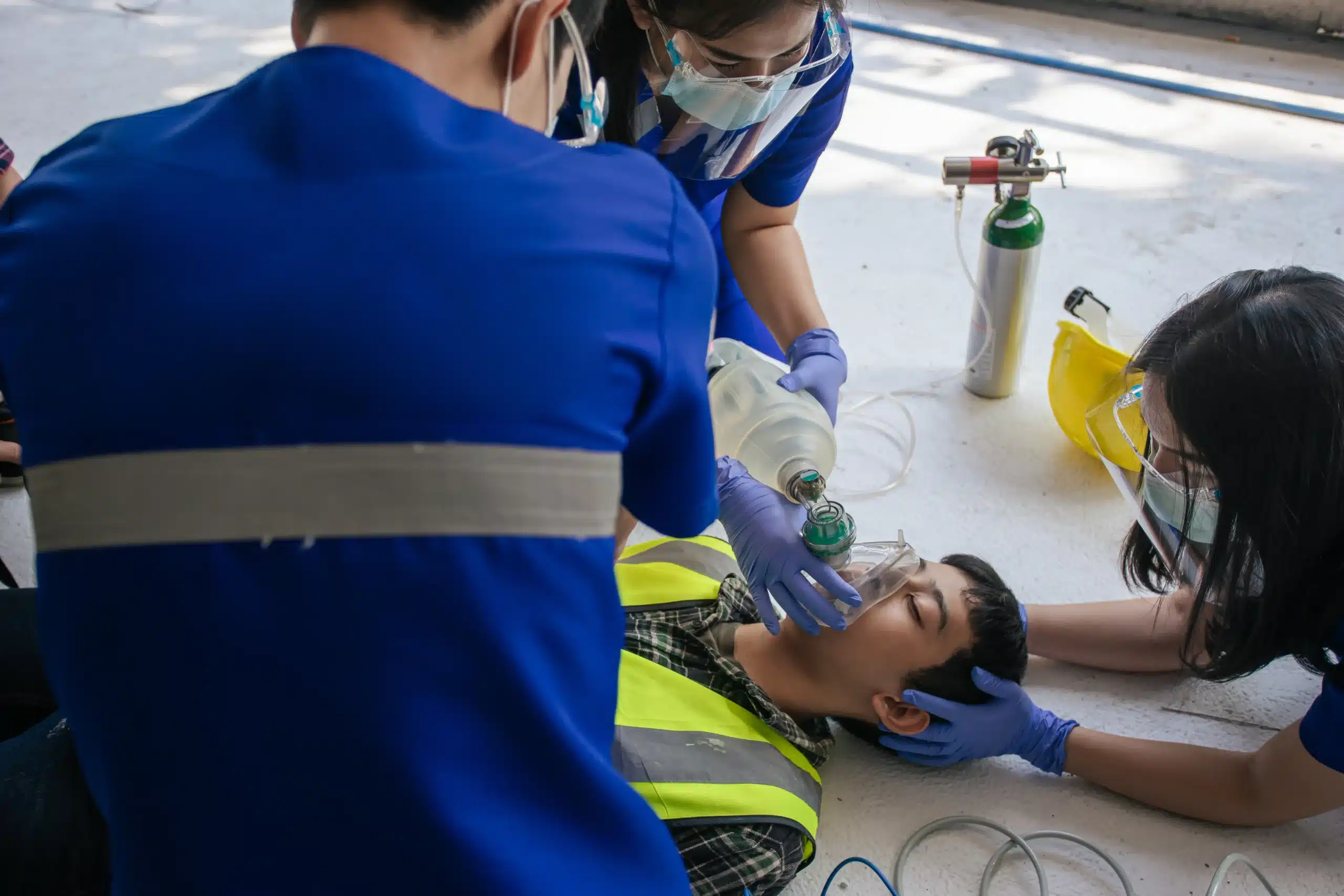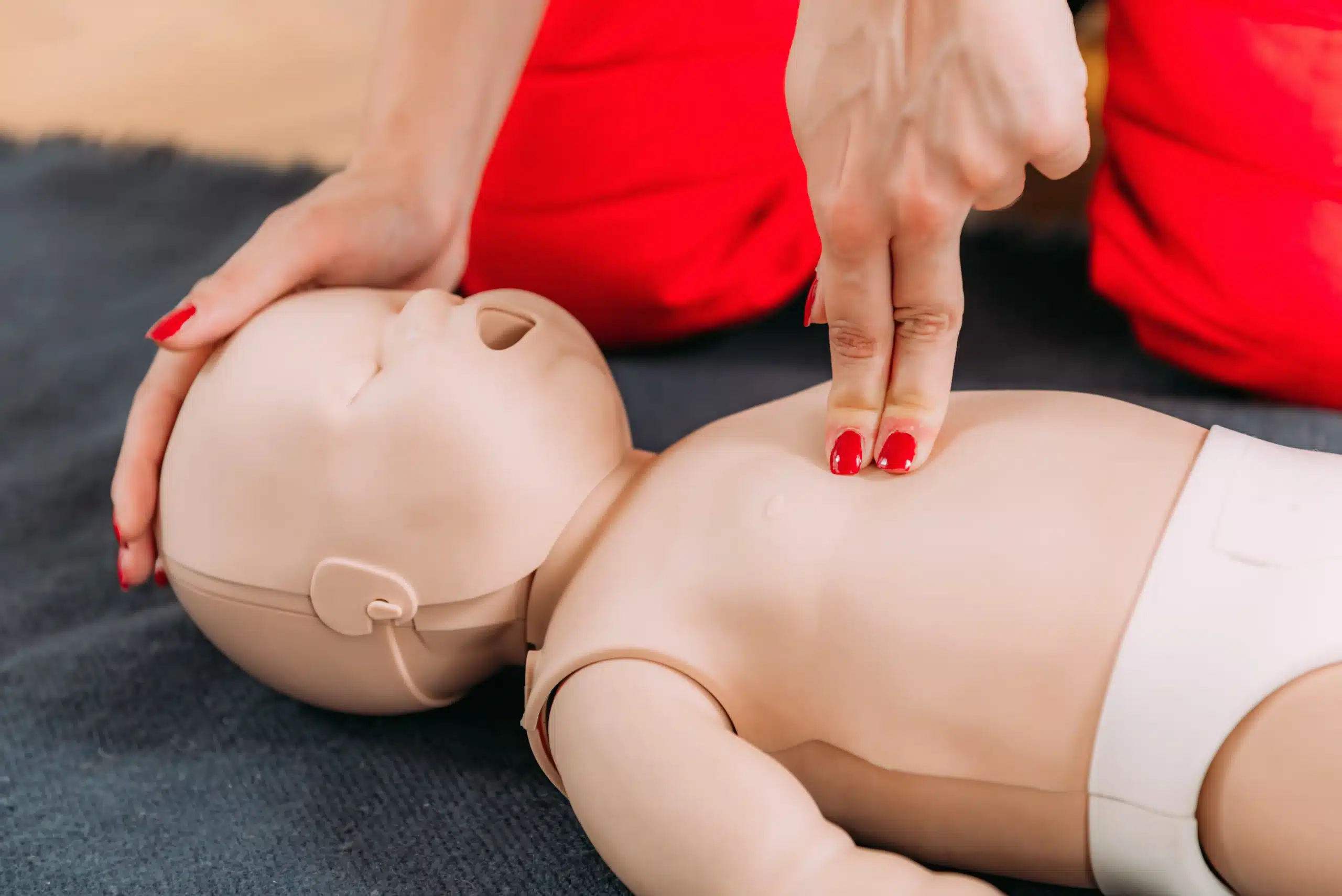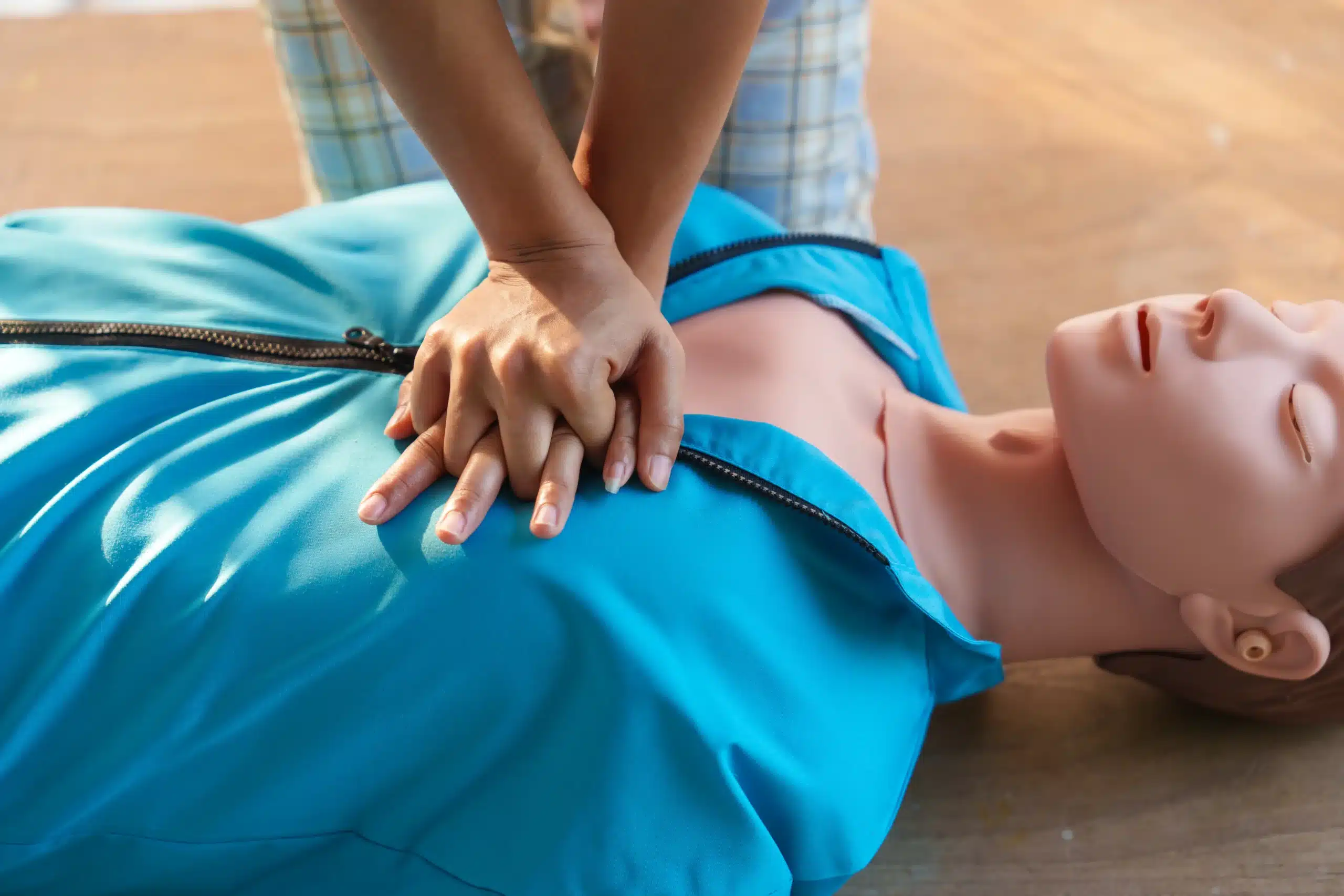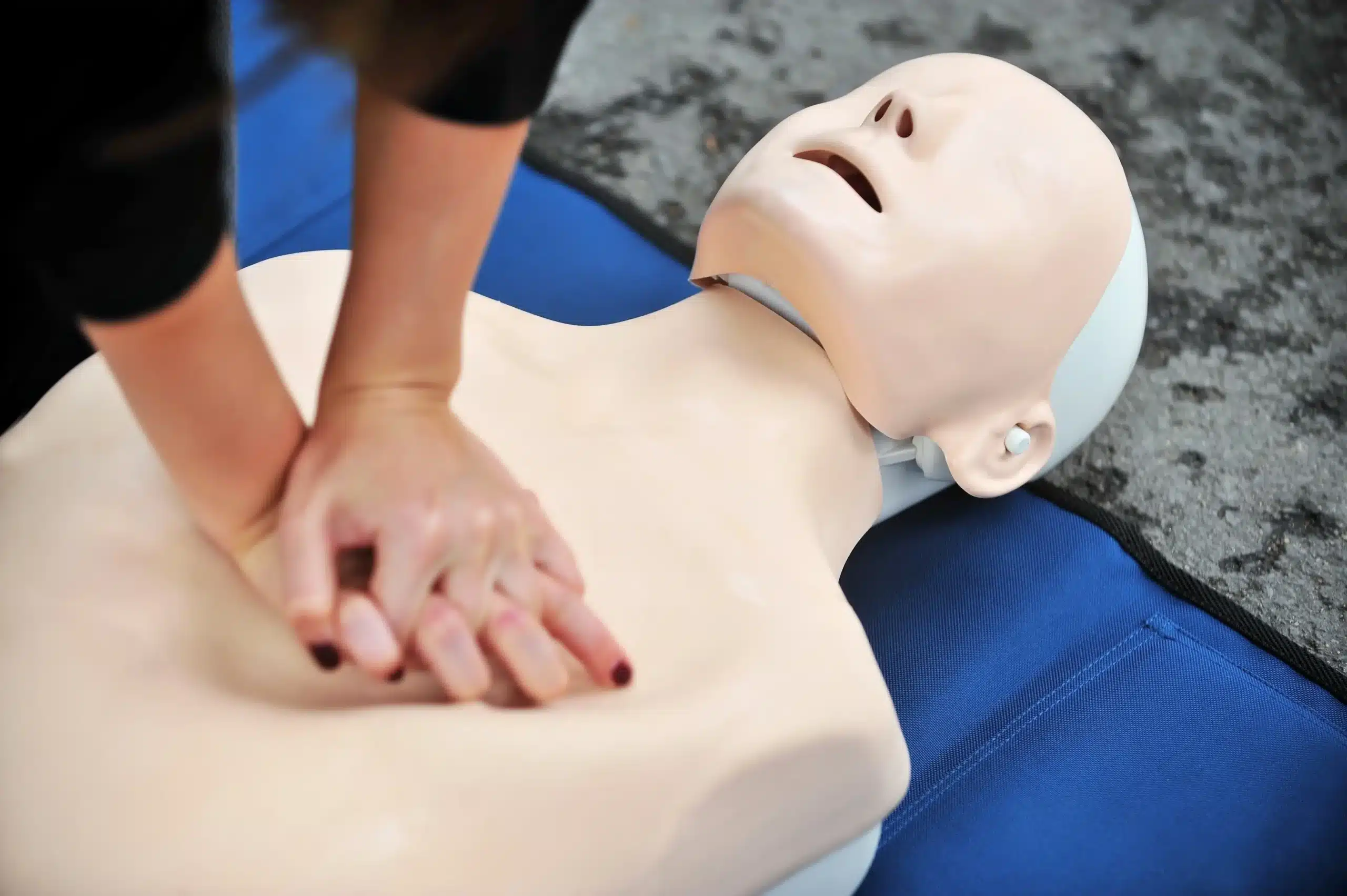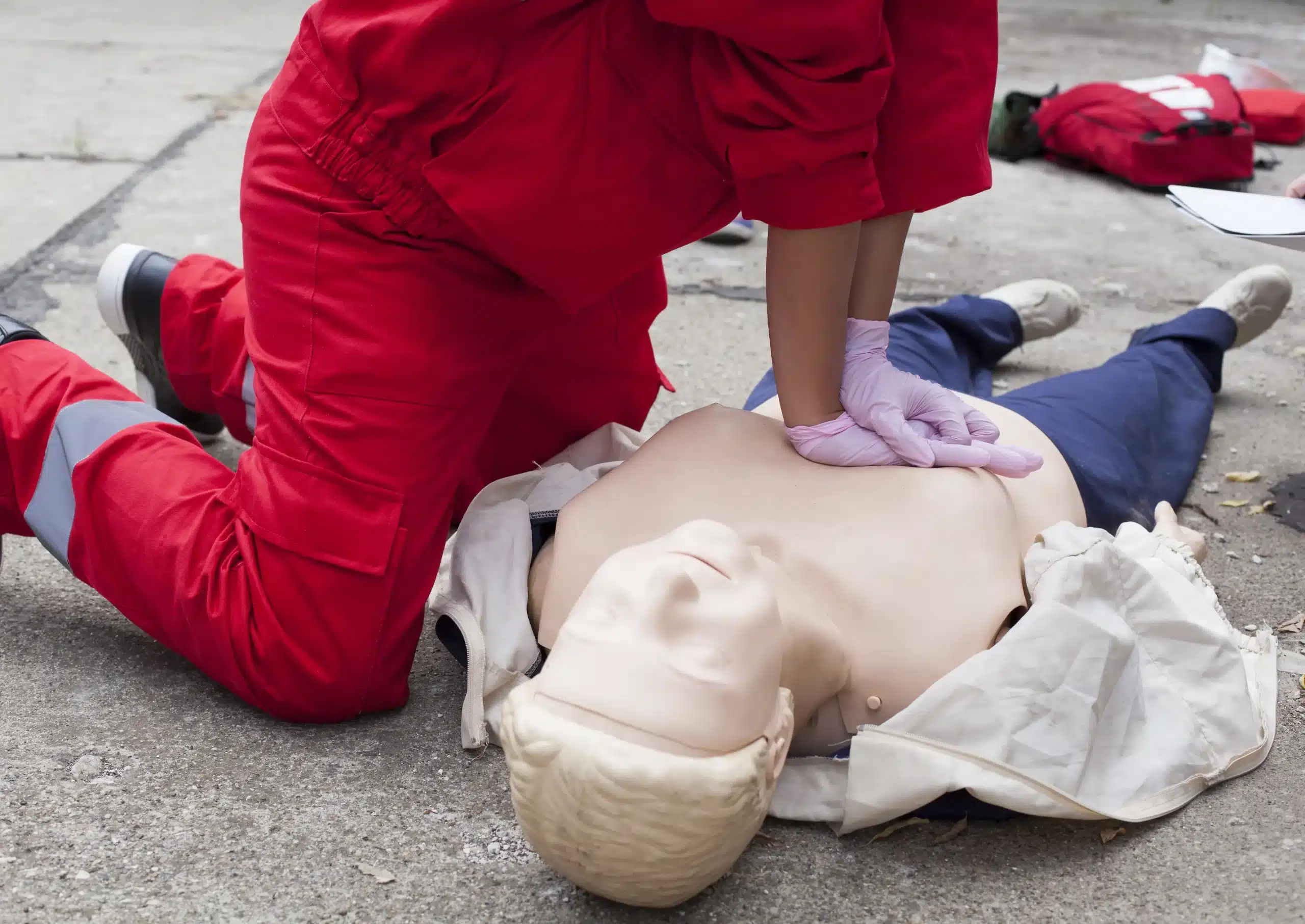Emergencies can happen anytime, anywhere. Having up-to-date CPR training means you’re prepared to respond effectively and potentially save a life. This article focuses on CPR renewal in San Francisco, providing a practical guide to maintaining your certification and skills. We’ll explore the various training options available, discuss the costs involved, and offer tips for finding a course that fits your schedule. Whether you’re renewing for your job, personal growth, or peace of mind, this guide will help you navigate the process of CPR renewal in San Francisco with confidence.
Key Takeaways
- Stay current with life-saving skills by renewing your CPR certification. Explore various learning formats—online, in-person, or blended—and choose the best fit for your schedule and learning preferences. Confirm your employer’s requirements before selecting a course.
- Find the right CPR renewal course in San Francisco by researching reputable providers. Compare offerings from Safety Training Seminars, the American Red Cross, and others, considering factors like cost, schedule, and instructor experience. Prioritize accredited courses.
- Keep your CPR skills sharp between renewals with regular practice and review. Refresh your knowledge and technique using online resources, practice scenarios, and quick reviews. This consistent upkeep builds confidence for real-world emergencies.
What is CPR Renewal in San Francisco?
CPR certification is valid for two years. After that, you’ll need a CPR renewal course to stay current with the latest life-saving techniques and guidelines. This ensures you’re prepared to respond effectively in an emergency. Think of it like renewing your driver’s license—it’s about staying up-to-date and qualified. In San Francisco, numerous organizations, including the American Red Cross, offer these essential renewal courses. These courses cover everything from basic life support to more advanced techniques.
Why Renew Your CPR Certification?
Renewing your CPR certification is crucial. Guidelines and best practices change, and renewal courses cover these updates, ensuring you’re using the most effective techniques. You can find renewal courses even if your certification is close to expiring—often within 30 days. Maintaining a current certification demonstrates your commitment to providing high-quality care, which is vital for many professions and volunteer roles. A current certification gives you the confidence of knowing you have the skills to make a difference in a critical situation. Online resources often detail the latest curriculum updates. Staying certified means you’re ready to help when it matters most.
Common Misconceptions About CPR Renewal
One common question is the validity of online CPR renewal. Online certifications are acceptable if they’re from a reputable organization accredited by the American Heart Association (AHA) or a similar body. However, employer requirements vary. Some may prefer or require in-person training, so check with your workplace. Another misconception is that online renewal is sufficient for all healthcare professionals. While convenient, online CPR might not meet all workplace requirements, especially in healthcare settings where hands-on skills are essential. This article clarifies some common questions surrounding online CPR certification. Always confirm what level of certification your job requires before choosing an online-only option. For some, a blended learning approach, combining online coursework with in-person skills practice, might be the best fit. Our courses offer various learning formats to suit different needs and schedules.
Top CPR Renewal Class Providers in San Francisco
Finding the right CPR renewal class is crucial for maintaining your skills and confidence in emergency situations. Here’s a rundown of some of the top providers in San Francisco:
Safety Training Seminars
Safety Training Seminars offers high-quality American Heart Association (AHA) courses, including BLS, ACLS, PALS, CPR, and First Aid. They’re known for their commitment to excellent customer service and low prices on these essential training classes in the San Francisco Bay Area, making them a solid choice for individuals and organizations. You can view their course schedule and register online.
American Red Cross
The American Red Cross is a trusted name in emergency preparedness and offers a variety of CPR and First Aid certification courses in San Francisco. Their established reputation and widespread availability make them a convenient option.
Revive CPR
Revive CPR offers AHA-certified CPR, BLS, and First Aid classes in San Francisco. They emphasize instructor-led, hands-on training, which can be a valuable part of the learning experience.
San Francisco Fire Department
While the San Francisco Fire Department may not directly offer renewal courses, they often partner with certified training centers. Check their website or contact them directly for up-to-date information on CPR renewal opportunities they may endorse. Many certified training centers in San Francisco offer AHA-aligned courses.
National CPR Foundation
The National CPR Foundation offers online CPR and First Aid recertification courses. This can be a good option for those seeking a flexible and potentially more affordable way to renew their certification. However, remember that online renewal may not meet all requirements for some professions. Always check with your employer or licensing body to confirm whether online renewal is acceptable.
What to Expect from the CPR Renewal Process
Renewing your CPR certification is straightforward, and knowing what to expect makes the process even smoother. This section covers the typical duration, how long your certification is valid, and the importance of hands-on practice.
Duration and Time Commitment
One of the first questions people ask is, “How long does CPR renewal take?” You’ll be happy to know it’s relatively quick. Many CPR renewal classes can be completed in about four and a half hours. If you’re short on time, online CPR renewal courses offer a faster route, often taking around 30 minutes. These online courses provide flexibility, allowing you to work through the material at your own pace. Safety Training Seminars offers a variety of course formats to fit your schedule.
Certification Validity Period
CPR certifications are typically valid for two years. This timeframe is standard across most certifying organizations, including the American Red Cross and the National CPR Foundation. Keeping your certification current ensures your skills and knowledge are up-to-date, allowing you to respond confidently in an emergency. Both organizations offer nationally and internationally recognized certifications, a reliable credential for professionals across various fields. Check out our BLS courses in San Francisco for renewal options.
Hands-On Practice Requirements
While online renewal courses offer convenience, most CPR renewal programs include a crucial hands-on skills session. This in-person component allows you to practice the techniques you’ve learned in a realistic setting, building muscle memory and confidence in your abilities. Some employers may also require in-person training, so confirming their specific requirements is always a good idea. The American Red Cross offers more information on the importance of hands-on training in their BLS certification programs.
Online vs. In-Person CPR Renewal: Which is Right for You?
Choosing the right CPR renewal course often comes down to personal preference and learning style. Both online and in-person options have their advantages, so understanding the differences can help you make an informed decision. Let’s explore the pros and cons of each format, along with the increasingly popular blended learning option.
Pros and Cons of Each Format
Online CPR Renewal: The biggest draw of online renewal is the convenience. You can renew your CPR certification from anywhere, at your own pace. Online courses are often more affordable and can be completed quickly, sometimes in as little as 30 minutes. This flexibility makes online renewal ideal for busy professionals, parents, or anyone with a packed schedule. However, online courses typically lack the hands-on practice and direct feedback from an instructor that in-person training provides. While online certifications from reputable organizations accredited by the American Heart Association (AHA) are valid, some employers may prefer in-person training. Check your workplace requirements before choosing online renewal.
In-Person CPR Renewal: In-person CPR renewal offers hands-on training with a certified instructor. This allows for personalized feedback, answers to your questions, and the opportunity to practice your skills in a realistic environment. Smaller class sizes can create a more interactive learning experience. The downside is that in-person classes require more of a time commitment, as you’ll need to travel to a specific location and attend the entire session. The cost is also typically higher than online renewal.
Blended Learning Options
Blended learning offers an excellent solution for those seeking a balance between convenience and hands-on practice. This format combines online learning with a shorter, in-person skills session. You’ll complete the cognitive portion of the course online at your own pace, then attend a hands-on session to practice your skills and receive instructor feedback. Many training centers in San Francisco offer blended learning for BLS, making it a faster and more efficient way to renew your certification. This approach is particularly helpful for those who prefer a more interactive learning experience but lack the time for a full in-person class.
CPR Renewal Costs in San Francisco
CPR renewal costs in San Francisco vary depending on several factors, including the training provider, the course type (BLS, ACLS, PALS, etc.), and whether you opt for online or in-person training. Understanding these variables will help you find a course that fits your budget.
Average Pricing
Expect a range of prices for CPR renewal courses. Basic online renewals can start as low as $12.95, while more comprehensive in-person training might cost closer to $50. Online providers like AED CPR offer renewals between $12.95 and $24.95. Keep an eye out for limited-time offers that can reduce the overall cost. It’s always best to check with providers like the National CPR Foundation for the most up-to-date pricing information. Remember that prices can change, so confirming directly with the provider ensures you have the most accurate figures.
Available Discounts and Promotions
Many training centers offer discounts and promotions, so do your research. Some, like Revive CPR, offer student discounts, while others run seasonal promotions. Group discounts are also common, which is helpful if you’re renewing with coworkers or friends. For instance, AED CPR sometimes offers savings of 25% or more for groups of five or more participants. Taking advantage of these discounts can make training more affordable.
Group Rates and Corporate Options
If you’re handling CPR renewal for a company or a large group, ask about group rates and corporate training packages. Providers like Safety Training Seminars offer group discounts, making it a practical choice for organizations. These packages often streamline the training process and may include customized content or on-site training. Coordinating training for a group can simplify logistics and ensure everyone receives consistent, high-quality instruction.
Choose the Right CPR Renewal Class
Picking the right CPR renewal class is key to ensuring you’re truly prepared for an emergency. It’s more than just a formality; it’s about having the confidence to provide effective assistance when every second counts. Here’s what to consider:
Factors to Consider
First, think about your specific needs. Are you a healthcare provider looking to refresh specific skills, or are you renewing a general CPR certification? Consider the course content and level of detail. Safety Training Seminars offers a range of American Heart Association-certified courses in San Francisco, from basic CPR to more advanced training like ACLS and PALS. Make sure the class aligns with your current certification and professional requirements. Also, consider the class format. Do you learn best in person, or would a blended learning approach with online components work for you?
Instructor Qualifications and Reviews
A skilled instructor can significantly impact your learning. Look for classes taught by experienced, certified instructors who foster a supportive learning environment. Student reviews offer valuable insights. Often, past students highlight instructors who are knowledgeable, patient, and effective communicators. Reviews frequently mention the instructors at Safety Training Seminars being kind, efficient, and creating a comfortable atmosphere. Hands-on practice is crucial for mastering CPR, so prioritize classes with ample opportunity to apply your skills.
Accreditation and Recognition
Ensure your chosen course is accredited by a recognized organization like the American Heart Association. This verifies the training meets national standards and ensures wider acceptance. Safety Training Seminars is a woman-owned AHA Training Center, offering high-quality, accredited courses. This is especially important for professional certifications. For instance, if you need ACLS renewal in San Francisco, confirm the course aligns with the AHA’s requirements. A recognized certification validates your skills and enhances your professional credibility.
Find Flexible CPR Renewal Schedules
Juggling work, family, and other commitments can make finding time for CPR renewal tough. Luckily, plenty of flexible options are available in San Francisco to fit your busy schedule. Let’s explore how you can find a class that works for you.
Evening and Weekend Classes
Many CPR renewal courses understand that weekday classes aren’t always feasible. Providers like Safety Training Seminars offer evening and weekend CPR classes, allowing you to renew your certification without disrupting your work week. These courses cover the same essential material as weekday classes, ensuring you receive comprehensive training and maintain your skills. Check with your chosen provider for their specific schedule and find a time that integrates seamlessly with your availability. They are known for competitive pricing on these essential training classes.
Same-Day Certification Opportunities
Need your CPR renewal ASAP? Several providers in San Francisco offer same-day certification. This accelerated format is ideal if you have a fast-approaching deadline or prefer to complete the process quickly. Providers like HeartStart CPR offer AHA ACLS certification and renewal classes, perfect for busy professionals. Just confirm the specific requirements and availability with the provider beforehand.
Convenient Locations in the Bay Area
Finding a CPR renewal class near you shouldn’t be a hassle. Numerous training centers are located throughout the San Francisco Bay Area, making it easy to choose a convenient location. Safety Training Seminars, for example, offers classes in various Bay Area locations. This widespread availability eliminates the need for extensive travel and allows you to focus on renewing your life-saving skills.
Prepare for Your CPR Renewal Class
Getting ready for your CPR renewal class is simple. A little prep work goes a long way toward making sure you’re ready to learn and refresh those life-saving skills.
What to Bring
Keep it simple: bring a valid photo ID and any previous CPR certification cards. This helps your instructor verify your prior training and makes the renewal process smoother.
Pre-class Study Materials
Many CPR renewal courses blend online learning with in-person skills sessions. Review any pre-class materials provided by Safety Training Seminars to refresh your knowledge of the latest guidelines from the American Heart Association. Even a quick review can make a big difference in how prepared you feel walking into class.
Supplemental Resources
Want to go above and beyond? Explore additional resources to deepen your understanding. The San Francisco CPR Classes blog offers insights on CPR training and life-saving techniques. You can also find helpful information on sites like the American Red Cross and Heart Start CPR.
Maintain Your CPR Skills Between Renewals
CPR skills can fade over time, so staying sharp is crucial. Regularly reviewing and practicing techniques between renewals helps you respond confidently in a real emergency. This section offers practical advice for keeping your skills fresh.
Practice Techniques
Hands-on practice is key to maintaining muscle memory and confidence. Even without formal training, you can refresh essential skills. Practice chest compressions on a firm surface like a pillow or cushion. Visualize the correct hand placement and depth, aiming for a consistent rhythm. Review the steps for delivering rescue breaths and practice opening the airway. Consider reviewing videos demonstrating proper CPR technique from reputable sources like the Red Cross. Working with a friend or family member can make practice more engaging and help you identify areas for improvement.
Refresher Resources
Many resources are available to help you brush up on your CPR skills. The Red Cross offers online resources and refresher materials to reinforce your knowledge. Check out videos and tutorials demonstrating proper techniques and updated guidelines. Safety Training Seminars also provides helpful resources and blog posts covering various CPR-related topics. Take advantage of these resources to stay informed about the latest practices and recommendations. You can also find valuable information on the American Heart Association website.
Importance of Continuous Learning
CPR techniques and guidelines evolve with ongoing research. Staying current with the latest practices ensures you provide the most effective care in an emergency. Continuous learning is especially important for healthcare providers who need to maintain advanced certifications like ACLS. Regularly reviewing updated guidelines and seeking refresher courses demonstrates your commitment to providing high-quality care. Consider subscribing to newsletters or following reputable organizations like the American Heart Association to stay informed about changes in CPR protocols. This dedication to continuous improvement can make a significant difference.
Related Articles
- CPR Training in San Francisco: Your Complete Guide – San Francisco CPR Classes
- CPR Certification in San Francisco: Your Complete Guide – San Francisco CPR Classes
- Find CPR Classes Near Me: Your Complete Guide – San Francisco CPR Classes
- CPR Courses in SF: Your Complete Guide – San Francisco CPR Classes
- CPR & First Aid Training in San Francisco: A Guide – San Francisco CPR Classes
Frequently Asked Questions
How often do I need to renew my CPR certification? CPR certifications are typically valid for two years. It’s important to renew within this timeframe to ensure your skills and knowledge are up-to-date.
What’s the difference between online and in-person CPR renewal? Online renewal offers convenience and flexibility, allowing you to learn at your own pace and often at a lower cost. In-person classes provide hands-on practice with an instructor, offering personalized feedback and a more interactive learning experience. Some employers may require in-person training, so it’s always best to check their specific requirements.
What if my CPR certification is about to expire? Don’t worry! You can usually renew your certification up to 30 days before it expires. Many providers offer various scheduling options, including same-day certification, to accommodate last-minute renewals.
How much does CPR renewal cost in San Francisco? Costs vary depending on the provider, course type (CPR, BLS, ACLS, etc.), and format (online or in-person). Online renewals can start as low as $12.95, while in-person classes are typically more expensive. Look for discounts, group rates, or promotions that might be available.
How can I maintain my CPR skills between renewals? Regularly practice chest compressions and rescue breaths on a firm surface. Visualize correct hand placement and depth. Review online resources, videos, and tutorials from reputable organizations like the Red Cross or American Heart Association to refresh your knowledge and stay updated on any changes in CPR guidelines.


